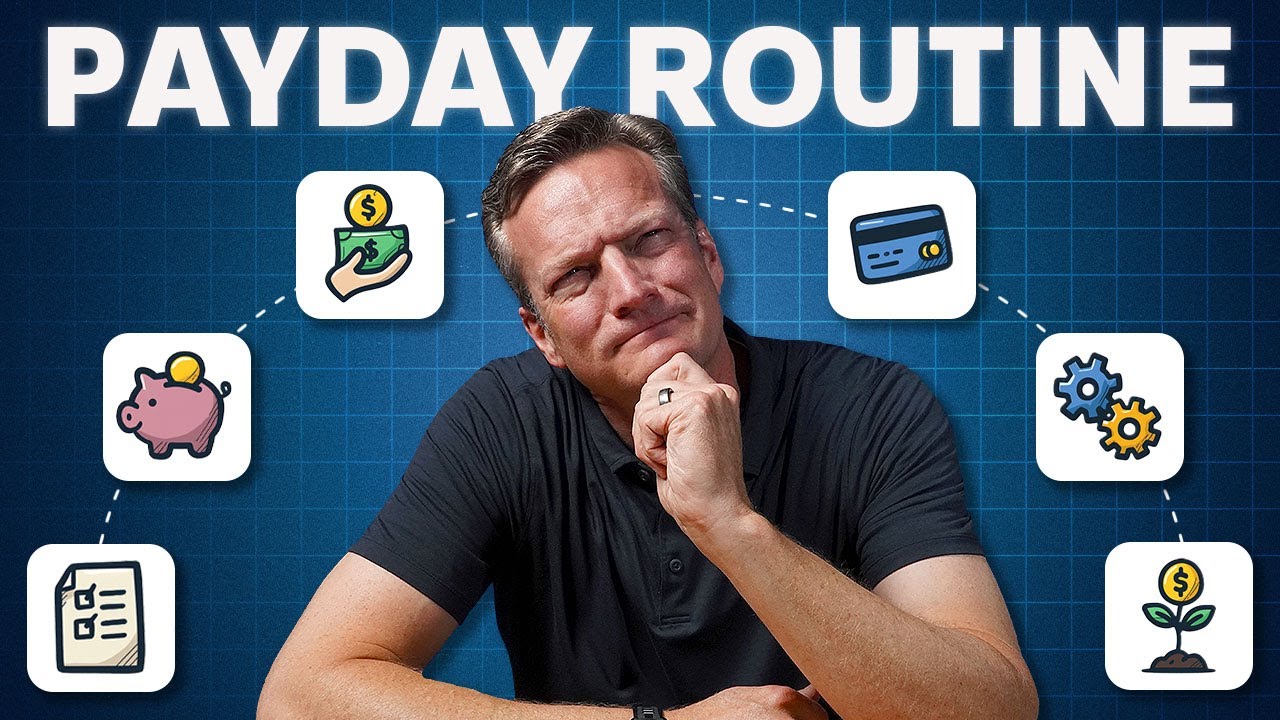We are going to go to MG’s question next. MG’s—I know MG, is that like Money Guys? I don’t know; I thought maybe it was a shout out to us. Maybe it’s his initials, I’m not sure. But either way, here’s MG’s question: any advice on how to process external financial stressors I can’t control? I am following the Financial Order of Operations and feel secure following the rules, but I also feel so defeated as rent and housing prices rise dramatically. So, can you speak to kind of the mental game of following the Financial Order of Operations and the wealth-building journey?
Yeah, you know, I love the way you framed the very end of that sentence. You said the wealth-building journey. It’s a journey, right? Like, it is an adventure, and frankly, it’s not that easy. Now, perhaps it’s easier for some and harder for others, but for everyone, we all face the same things. We all face periods of scarcity; we all face opportunity costs, we all face choices we have to make with what we do with our dollars and how we do those things. Now, the board that some of us are playing on might look a little bit different than others, but we all have to face it. So, I think one thing you can do is you can kind of just breathe easy and say, you know what? I’m not going this alone. Everyone is on a similar journey, and everyone kind of struggles on this journey.
Now, one thing that I do love, MG, that you said is I recognize that when it comes to the financial world, there are things that I can control and there are things I cannot control. First of all, just having the realization of that should give you a little bit of stress relief where you can focus on okay, I can control my savings rate. Okay, I’m going to do that. I can control my expenses. Okay, I can do that. I can control how excellently I’ll do my job, which will hopefully lead to me being able to advance in my career. Okay, I can control that. What are the things I can’t control? Man, you know what? I can’t control if I lose my job. Awesome, that’s what step four emergency funds are for. You know what, man? I can’t control if I get in a car accident and I’m disabled. Boom, there’s insurance that I can go out and do. Man, you know what? I can’t control what happens with inflation. Okay, awesome, I’m going to make sure that I lock in my fixed expenses as low as possible and I make sure that any variable expenses I’m incurring, I can cut out.
I think you’re already thinking through it the right way by recognizing there are things that I cannot control, and I’m going to do my best given those that I can. But there are things that I can control, and on those things, I’m going to dive headfirst into how I keep them where they need to be so I have peace in the other areas of my financial life.
Now, I think that the way MG has presented this is good, but I don’t mind being self-reflective. During the pandemic, I was part of a men’s small group, and there’s all this crazy outside stuff—health-related, financial-related, just a lot of stresses, general stresses out there. And I was fortunate that I had this group of men, and we’d meet every week. And, you know, we’d all just… you found that we were all lamenting about struggles. And then there was a guy in the group, Jason, who said something that stuck with me. Anytime I face a lot of stress, he was like, “Guys, you’ve got to tend to your own garden.” I mean, there was some grounding to this biblically too, but he was talking about you can only tend to your own garden if you really remove the noise and really get into it. And that’s why I would tell you that, you know, and I think about a conversation I had with Daniel last week. We were looking at there was a brand new thing that we’re going to probably show you guys where we found some web resources where you can really fine-tune the decision of buying versus renting your house. And the decision, right now, we were looking at this area we live in, and in a lot of ways, it was almost hard to justify buying a house. Rent kept coming up over and over as the winner because of all the crazy assumptions with high-interest rates, high purchase prices. But this is what I told Daniel at the end of the day. I was like, look, I’m old enough, and I know you just got to trust me because I am old enough. I’ve been around now for multiple financial decades of actually working and living within this. Reversion to the mean is a real thing. If the market is distorting to where nobody can afford to buy a house, interest rates are high, this will change. There will be something. And I’m an optimist, so I’m positive, but I still think that there will be something that adjusts. I mean, think about that. What just came out last week with New York not allowing Airbnb? What do you think that’s going to do to the real estate market in that area? Everybody who went and speculated and got into Airbnb is going to lose their shirts. That’s going to dump a ton of real estate on the market. Nobody saw that. You couldn’t necessarily know.
So, I’m telling you, there… I don’t know what it is, and I’m not saying to know where the cards may fall, but I just tell you that when things get out of whack, there’s usually a reversion to the mean at some point in the process. So, I would tell you, back to the question at hand, focus on what you can control, which is the financial order of operations, all the good decision-making. Because the thing about luck, when people talk about luck, it really is you being prepared and then the opportunity comes across your path at the exact moment. So, if you’re doing everything that we have in the financial order of operations and you have cash reserves and you’ve got money going into investments, when the perfect opportunity comes your way, you know, when things go back to a reversion, you’re going to be structured in a way that people are going to look at you in the future and go, “Look how lucky that son of a gun is.” And the reason it’s not luck is you were prepared and you had assets, you had resources when nobody else did, and you were right there to take advantage of the opportunity when it shows up. So, use that. I know that there’s a lot of philosophical stuff, and we’re very analytical heavy hitters, but I think that you needed to hear some of that stuff so you can focus on what you control, can control, and then cut the noise out that’s going to keep you from maximizing your opportunity and your goals. For more information, check out our free resources.













